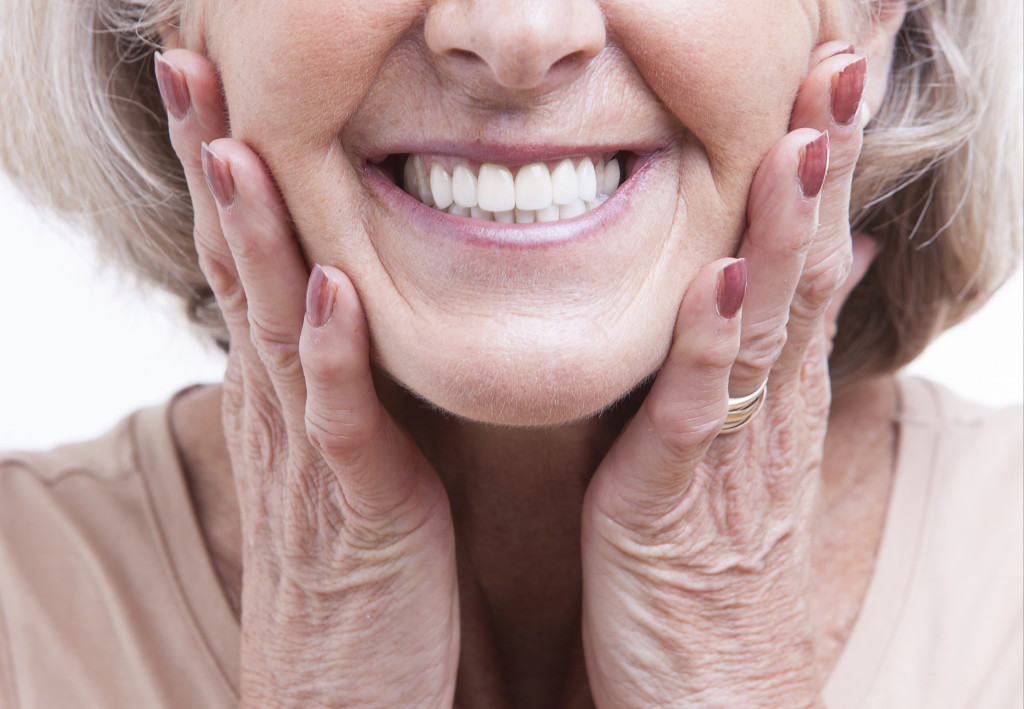As your elderly loved ones grow older, it’s essential to ensure they care for their oral health. Good oral hygiene is vital for overall good health; however, many seniors struggle with maintaining proper dental care as they grow older. Poor dental hygiene can lead to several problems, such as cavities and gum disease, which can then cause additional issues like heart disease or stroke.
That’s why you must help your elderly loved one stay on top of their oral health routine by providing them with the resources and support they need to take care of their teeth and gums. This article will provide tips on how to keep up with the oral health of your elderly family member or friend.
Visit the dentist regularly.

Keeping up with oral health is essential to helping your elderly loved ones remain healthy and independent. Ensuring they visit the dentist regularly is one of the first steps to good oral health.
Regular visits can allow their dentist to identify potential problems, provide advice on home care, and perform necessary preventative treatments like cleanings, fluoride, and fillings if needed.
Not only can this help your elderly relative avoid costly procedures due to poor dental hygiene, but it can also help them maintain a high quality of living by ensuring their teeth remain healthy, preventing gum disease and pain from cavities or abscesses.
Good oral health boosts confidence in the elderly by making them feel proud and Comfortable in their smile again. Having a healthy mouth can go a long way in terms of physical and emotional well-being for your elderly loved one.
Consider letting them get teeth replacements.
Taking care of your elderly loved ones can be tricky and emotional, especially considering the many aspects of their health. Maintaining oral health is paramount, as poor dental hygiene can increase the risk for many diseases, not just in the mouth but throughout the rest of the body.
An easy way to improve their oral health is by talking to their doctor about getting some form of teeth replacement if it would benefit your elderly loved one’s quality of life. This can help them eat more comfortably since eating with missing or ill-fitting teeth can be difficult and discouraging.
In addition, these types of prosthetic teeth are relatively easy to get fitted, providing them with a natural-looking smile that will make them feel confident and better about themselves. If you think this is something your elderly family member would enjoy, then don’t hesitate to talk to their doctor.
Focusing on how you can improve your elderly loved ones’ quality of life may be daunting when there’s so much more that goes into it than just oral health, but small steps such as this one allow us to show your appreciation for all that they’ve done for us over the years.
Ensure they are brushing and flossing.
It is essential to take extra care of the oral health of elderly loved ones. Daily brushing and flossing keep their mouths clean and healthy, while adding an antibacterial mouthwash twice a day can reduce the number of harmful bacteria in their mouths.
Poor oral hygiene weakens the immune system and can lead to painful tooth decay, some types of cancer, and even life-threatening heart conditions like stroke or infections. Keeping up with your elderly loved ones’ oral health improves their overall well-being, helps them keep a vibrant smile, and promotes confidence in speaking.
To properly brush teeth in the elderly, use a gentle form of fluoride toothpaste (but avoid whitening kinds of toothpaste that may be too abrasive) and water instead of an electrically powered brush if they have physical impairments that may limit their dexterity. With regular dental checkups from their dentist by their side and vigilance in at-home oral hygiene practices, your elderly loved ones will enjoy better health for longer.
Provide them with sugar-free snacks and drinks.
Providing sugar-free snacks and drinks to elderly loved ones is essential for their oral health. Dietary habits play an important role in oral health, with reducing sugar intake necessary for maintaining healthy teeth and gums.
Indeed, high levels of sugar consumption can lead to cavities in the teeth and contribute to decay over time. Therefore ensuring elder relatives are consuming as little or no sugar as part of their diet is key to protecting their oral health, given that at this age, they may still be susceptible to dental issues.
Making sure elder relatives have access to sugar-free snacks and drinks is key not only for keeping teeth clean and healthy but also preventing feeling uncomfortable or embarrassed due to any potential dental problems. Ultimately, providing your elderly loved ones with sugar-free treats and drinks will go a long way in keeping up with their oral health needs.
These are just a few of the many ways you can ensure your elderly loved ones stay on top of their oral health. While some may need extra help and support, others will be able to take care of themselves without any assistance.

